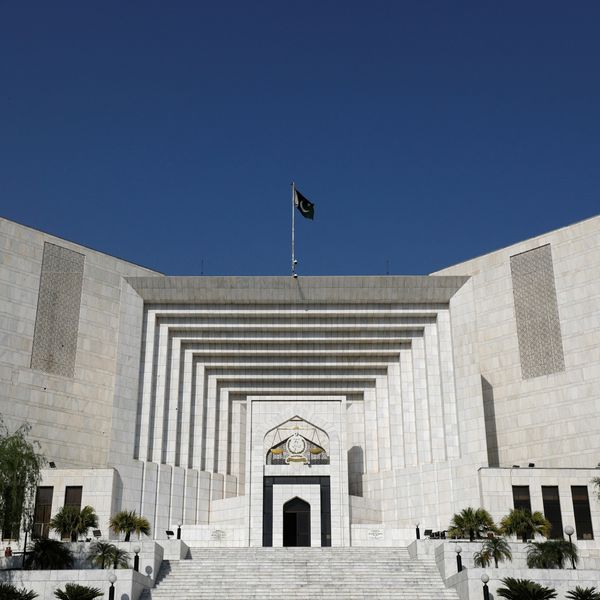Foreign investment in Pakistan T-bills rises to near-record level
Net investment in 11 months of FY24 amounts to $529 million, the second-highest after FY20’s total of $612 million.

Urooj Imran
Senior Producer
Urooj has over five years of experience reporting and editing for some of Pakistan's leading publications. She is passionate about simplifying business news; her favorite pieces to work on are explainers.

Haris Zamir
Business Editor
Experience of almost 33 years where started the journey of financial journalism from Business Recorder in 1992. From 2006 onwards attached with Television Media worked at Sun Tv, Dawn Tv, Geo Tv and Dunya Tv. During the period also worked as a stringer for Bloomberg for seven years and Dow Jones for five years. Also wrote articles for several highly acclaimed periodicals like the Newsline, Pakistan Gulf Economist and Money Matters (The News publications)

A person holds Pakistani Rs5000 notes
Shutterstock
Pakistan’s government securities were an attractive option for foreign investors in fiscal year 2024, attracting near-record levels of inflows in the first eleven months because of the high interest rate.
Data shared by the State Bank of Pakistan (SBP) showed that foreign inflows in T-bills in FY24’s 11 months amounted to $642 million, while outflows were around $112 million. The net foreign investment in T-bills came in at $529 million, of which $204 million alone was in June.
This is the second-highest level compared to $612 million invested by foreigners in FY20. Moreover, January 2020 saw the highest-ever foreign inflows in T-bills at $1.4 billion. However, since part of this amount was later taken out, the net investment at the end of FY24 was $612 million.
Analysts have attributed the rise in foreign investment to Pakistan’s interest rate, which is the highest in the region compared to India’s 6.5%, Bangladesh’s 8.5%, and Sri Lanka’s 8.5%.
Meanwhile, the interest rates in the United States and United Kingdom are 5.25-5.5% and 5.25%, respectively.
This means that if a foreigner invested $100 million in Pakistan government T-bills, they would make $20.5 million on a 12-month basis (on average) compared to $6.5 million for India, and $8.5 million each for Bangladesh and Sri Lanka. (the calculations are based on the interest rates of the countries, not the cut-off yields.)
T-bills are short-term securities issued by the government to raise cash, and have tenures of 3 months, 6 months, and 12 months. They are considered to be low-risk investments since they are backed by the sovereign and have a fixed rate of return called the yield.
The yield depends on the country’s interest rate, market sentiment, and future expectations. After the bidding time for investors has ended, a certain cut-off yield is announced. All bids that are below the cut-off yield are then accepted. When the T-bill’s tenure has matured, the investor is returned the original amount plus the interest (yield).
At the beginning of FY24, the yield was around 22.95% on 3-month bills, 22.99% on 6-month bills, and 23.02% on 12-month bills. The interest rate was a record 22% as the SBP tried to control inflation, which had reached a high of 38% in May 2023.
The interest rate was maintained throughout FY24 till the SBP decided to cut it to 20.5% in June following a decline in inflation, which clocked in at 12.6% in May.
The SBP initially did not revise the cut-off yields following June’s rate cut. However, it later reduced the cut-off yield by 0.01% for six-month T-bills and 0.41% for 12-month bills.







Comments
See what people are discussing